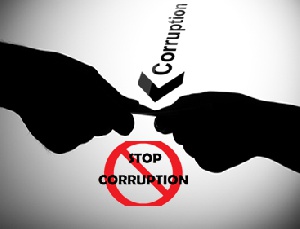The European Union (EU) has called on Africa to tackle issues of corruption in a more realistic way to create economic opportunities for their people to stay and build the continent.
According to Mr Dirk Buda, the Head of Political School, EU delegation, Rabat, African countries needed a robust independent justice system and effective public administration to tackle corruption.
He was speaking at the on-going Media and Migration school, underway in Rabat, Morocco, and attended by 27 Journalists drawn from Europe and Africa.
Mr Buda explained that though EU was taking strategic partnership with Africa to facilitate rapid socio-economic development of the continent, African leaders must ensure that rule of law worked to promote good governance to increase prosperity in the continent.
Dubbed: “Journalism in a global context-challenge migration”, the Erich-Brost-Institut of Journalism in close partnership with the Africa Institute of Media, Migration and Development (AIMMAD), the AMI and Goethe Institute with funding from the Robert Bosch Stiftung is organising the September School.
The school is aimed at building bridges between Journalists in Europe and Africa on migration.
Mr Buda indicated that the EU had taken global response to the challenge posed by irregular migration and tackling the issue in a holistic approach, mentioning lack of economic prospects and job opportunities as driving forces of irregular migration in Africa, and advised African governments to promote sustainable development.
Meanwhile, Mr Eric Chinje, the Managing Director of the Africa Media Initiative (AMI), a pan African media organisation has lauded President Nana Addo Dankwa Akufo-Addo’s vision of developing Ghana beyond aid.
He said Africa had numerous human and natural resources to develop the continent, but lack of quality leadership and high corruption retarded their growth.
Based in Kenya, AMI seeks to strengthen the continent’s private and independent media sector from an owner and operator perspective to promote democratic governance, social development and economic growth, through a set of strategic activities aimed at transforming the media and communications landscape on the continent.
Mr Chinje, a renowned Cameroonian-US based Journalist observed that Ghana’s development beyond aid agenda was a bold decision taken by President Akufo-Addo’s government, and African leaders must emulate to bring the development of the continent to the next level.
He said countries such as Ghana, Rwanda and Ethiopia were fast developing because of their current quality leadership, saying Accra, Kigali and Addis Ababa were fast developing cities in Africa.
That notwithstanding, Mr Chinje said Journalists in Ghana and the rest of Africa had a huge task to showcase and sell the potentials of the continent to attract investors and push forward development.
General News of Sunday, 15 September 2019
Source: ghananewsagency.org
Be realistic in fighting corruption - EU tells governments in Africa
Entertainment












